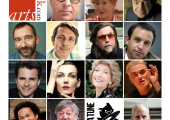★★★★★ FRANCES WILSON: ELECTRIC SPARK - THE ENIGMA OF MURIEL SPARK Frances Wilson employs her full artistic power to keep pace with Spark’s fantastic and fugitive life
Frances Wilson employs her full artistic power to keep pace with Spark’s fantastic and fugitive life
How do you tell the story of a person’s mind? In the preface to Electric Spark: The Enigma of Muriel Spark, published this year by Bloomsbury, Frances Wilson points out that biography was one of her subject’s own fixations.
Spark’s first full-length book, Child of Light, reinterpreted the life of Mary Shelley by means of a novel two-part structure: half “Recollection” and half criticism. She went on to write several literary biographies and her fiction is populated by chroniclers, libellers, and legacy-obsessed pensioners.










